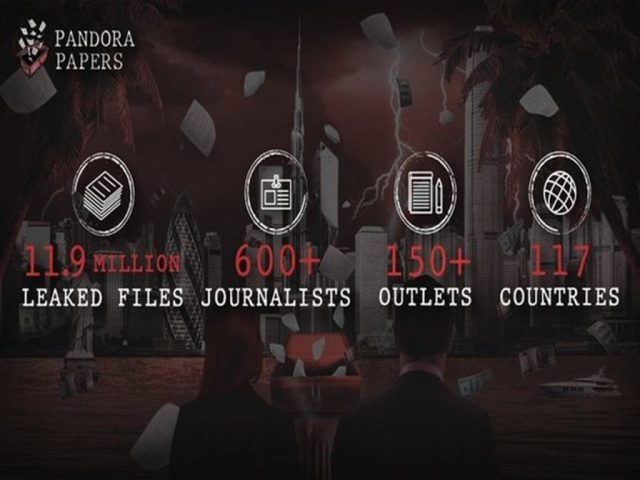Pandora Papers is now the most talked-about topic globally after it published about 12 million documents, 2.94 terabytes of data, and 14 sources. More than 600 journalists from 118 countries have been involved in the coverage of influential people worldwide, including hidden assets, tax evasion, and money laundering. Hailing from Washington DC, USA, the International Consortium of Investigative Journalists (ICIJ) collects the data. In addition, they verified the collected data with about 140 news agencies, making it the most significant investigation ever. In the UK, BBC Panorama and The Guardian led the investigation.
What came out in the Pandora Papers?
Like the Panama and Paradise Papers of the past, Pandora’s Papers were full of anecdotes of corruption by world leaders. According to the Pandora Papers, Azerbaijani President Aliyev and his family have invested around £400 million in the UK. In addition, Aliyev made a profit of about £31 million by selling his London property, the Crown Estate.
King Abdullah of Jordan has around £70 million in the United Kingdom and the United States. Since 1999, he has created a tax haven in the British Virgin Islands, naming various offshore companies. He has 15 houses there. It also has three seaside mansions in Malibu, California, and multiple locations in the United Kingdom, with a market value of around £50 million. Kenyan President Uhuru Kenyatta and six family members account for 11 secret offshore companies with assets of about £30 million.
Assets built by the Prime Minister of Pakistan Imran Khan and his cabinet through offshore companies and trusts with a market value of several million dollars.
Ahead of the 2019 elections, Ukrainian President Volodymyr Zelensky smuggled his assets abroad through a secret offshore company.
Ecuadorian President Guillermo Lasso withdrew his assets from a Panamanian foundation in the state of South Dakota in the United States. Note that the Panamian Foundation paid its monthly stipends to its family members.
Although Russian President Vladimir Putin’s name did not appear directly in the Pandora Papers, a Russian woman’s seaside mansion in Monaco in 2003, along with that woman, was accused of having Putin’s secret child. However, the Kremlin has dismissed the allegations as “baseless.”
The Qatari royal family has evaded £16.5 million in taxes for a luxury mansion in London.
The Czech president’s two luxury villas in France bought through an offshore company have a market value of £12 million. To cap Pandora Papers, it has brought more than 6 million documents, nearly 3 million photos, and more than 1 million e-mails to the limelight, granting it the second-largest leaked document ever and the largest in terms of data storage.
What is an Offshore company?
Offshore outsourcing comes with the great promise of cost savings. But legally, it may not always be illegal. Many companies may move out of the country due to higher tax rates in their home country or institutional weakness. This is seen in the case of large shipping companies. However, it is also used for smuggling money. In particular, these offshore companies have become an ideal means of money laundering and tax evasion.
Through various complex networks, the name of the leading investor is kept secret, and the profits from his invested money are offshore companies’ textbook style. There are legitimate reasons to keep people’s money and wealth in different countries, such as protection from criminal attacks, protection of wealth in times of political instability, etc. For these reasons, affluent people think it is right to manage money and assets through offshore companies.
It is virtually impossible to say precisely how much money is hidden through offshore companies. However, according to ICIJ, the amount is estimated at $5.6 trillion to $32 trillion. According to the International Monetary Fund (IMF), governments worldwide have to pay $800 billion in taxes each year to use tax havens. There is no specific list of tax havens. However, some well-known destinations include the British Virgin Islands, the Cayman Islands, Singapore, and Switzerland.
Although the Panama and Paradise Papers published in the past have caused many controversies, this year’s Pandora Papers are massive in terms of data and the variety of defendants. As a result, there is a risk of increasing political instability. It remains to be seen to what extent the political influence of the accused statesmen will be maintained.
We have to wait for the future to measure the acceptability of Pandora Papers. Whether the Pandora Papers have the power to change the reckoning of global politics is a matter of considerable scrutiny. It remains to be seen how such a severe report will affect the future economic system.




















